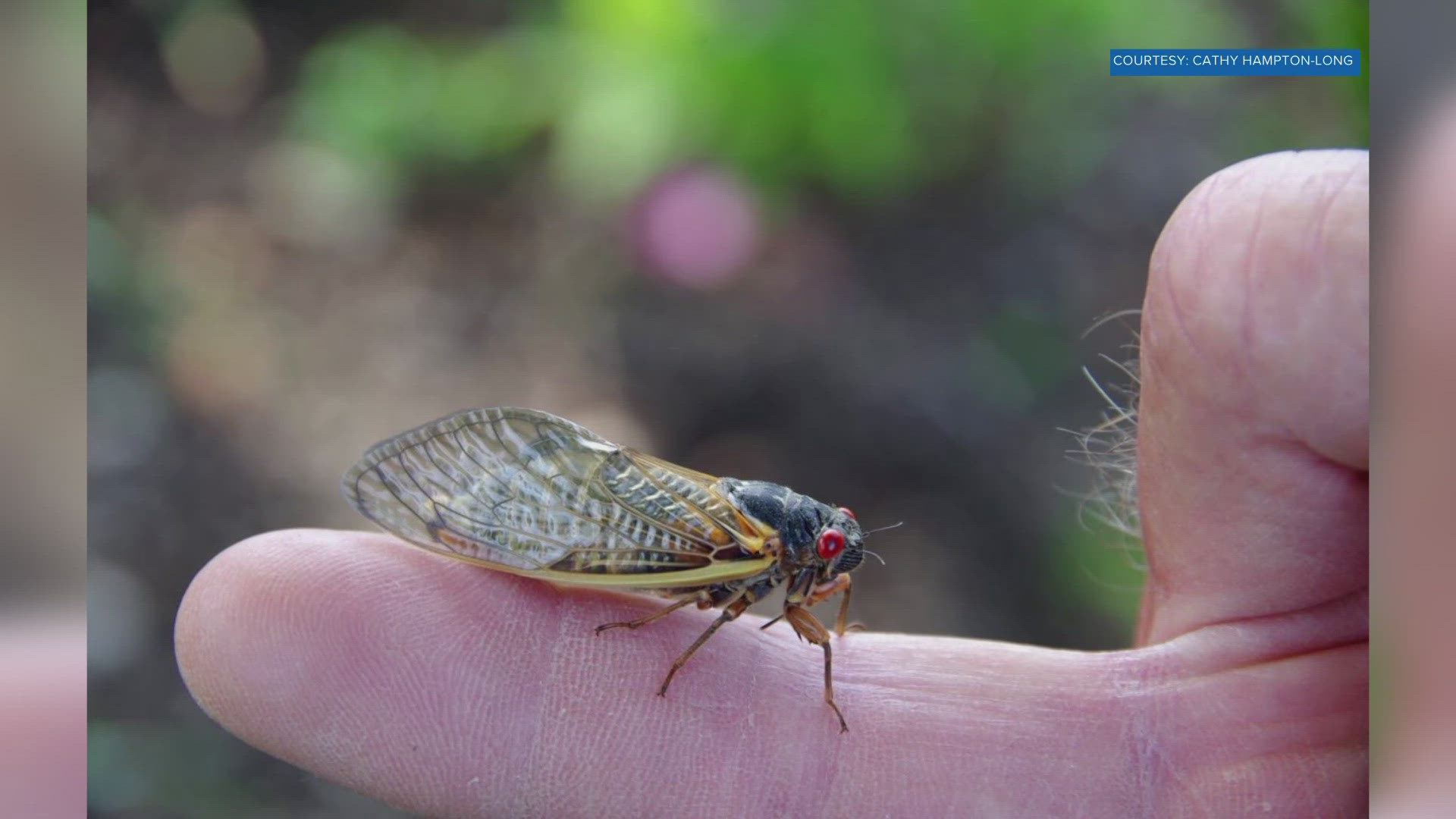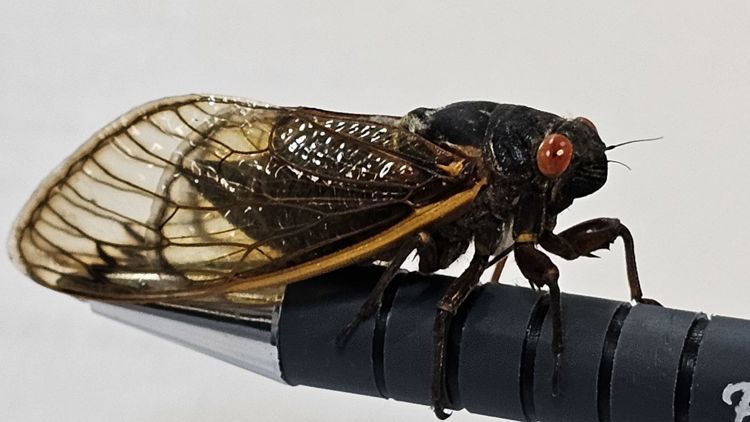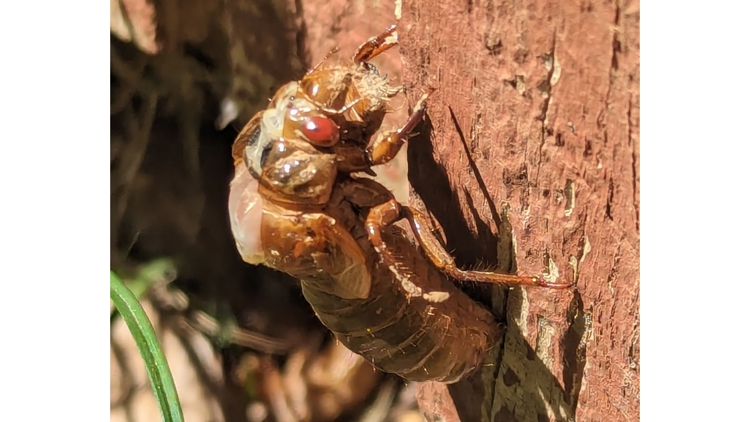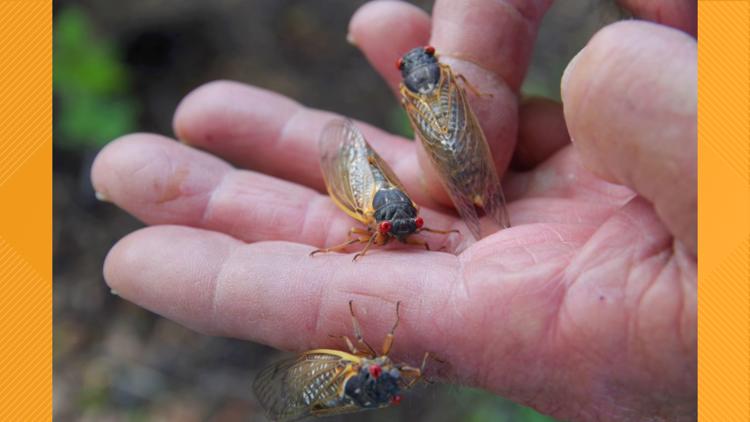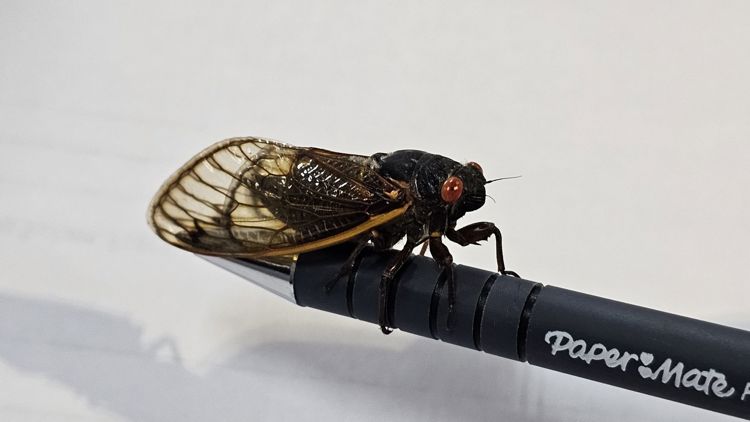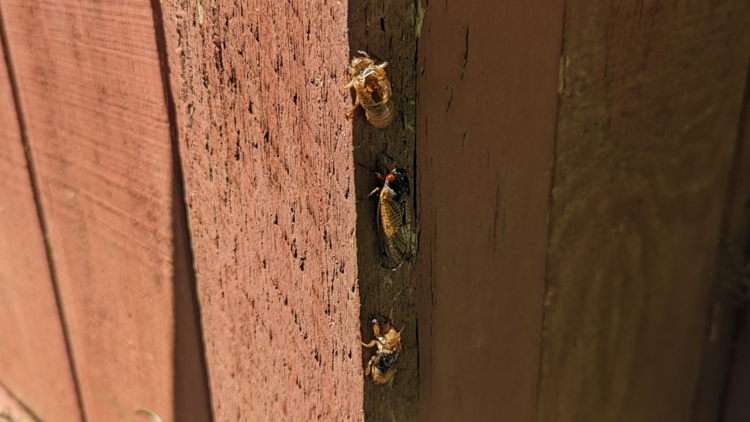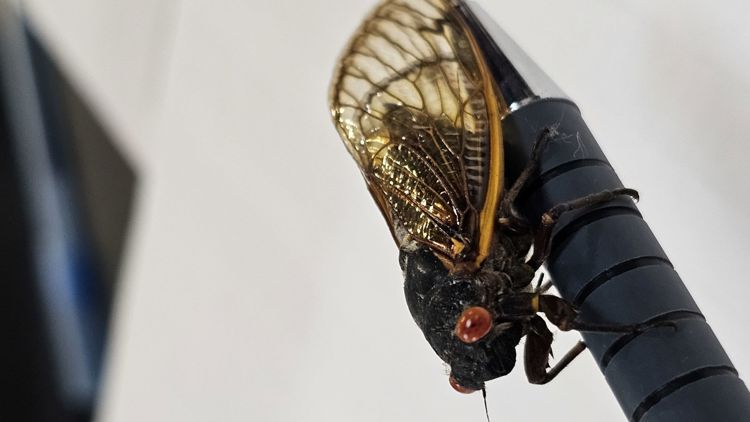GREENBACK, Tenn. — Are you starting to hear loud bugs screeching outside during the day? If so -- happy beginning of May! You are living in one of the "lucky" areas of East Tennessee that has Broox XIX cicadas emerging this year!
These cicadas are part of a brood that emerges every 13 years. They are starting to claw their way to daylight now that the weather has warmed up.
Will the Knoxville area see many of these bugs? Probably not. Brood XIX is primarily in Middle Tennessee, but its known range extends into East Tennessee as far east as Loudon and Monroe counties.
“Get ready to experience some periodic cicada emergence this spring. Don’t worry; you will hear them well. If you are a bug enthusiast, get out there and enjoy. If you are not, don’t worry. It’ll be over in a month and a half,” said Midhula Gireesh, assistant professor and UT Extension specialist in entomology and plant pathology at the UT Institute of Agriculture.
Some of the bugs have been seen emerging around the city of Greenback in Loudon County. The brood's range seems to be extending further east, so there's a chance sporadic cicada chirping will be heard in wooded areas neighboring Loudon and Monroe counties, such as Blount County.
Cathy Hampton-Long lives in Friendsville, a city on the western edge of Blount County, and shared photos of cicadas emerging on her farm on Thursday.
"This is the first we have seen this year! They were located on our daffodils underneath our very large white oak tree," she said.
Brood XIX cicadas emerge in East Tennessee (May 2024)
The University of Tennessee Institute of Agriculture said the cicadas develop underground for 13 years and emerge when the soil temperature at 8 inches deep warms up to about 64 degrees.
From there, the bugs find a sturdy surface to cling to, such as a tree, so they can molt their larval exoskeleton to free their wings. The adult cicada leaves behind a pristine shell and flies away to find mates.
UT said the males are the ones that make most of the noise because they"sing" with drum-like membranes on their bodies called tymbals to attract mates. After mating, a single female will lay hundreds of eggs in twigs of woody plants. The eggs take about six to seven weeks to hatch, and the nymphs burrow down into the soil to repeat the process in another 13 years.
UT said the average adult cicada emergence lasts for about five to six weeks before the adult bugs die off -- meaning these bugs will be with us until June.
If you're wondering how many to expect, the number is in the billions.
"Millions, millions of them per hectare," said Douglas Airhart, a professor of horticulture at Tennessee Tech. "Millions per acre."
The last time this brood came out, it wreaked havoc on nurseries and orchards. And in the past, their emergence was costly.
"Millions of dollars of damages were recorded, because some of the nurseries had insurance and they claim insurance, you had to record your damages," Airhart said.
You can buy cicada mesh at any hardware store or on Amazon to wrap your trees and protect them from cicadas.

